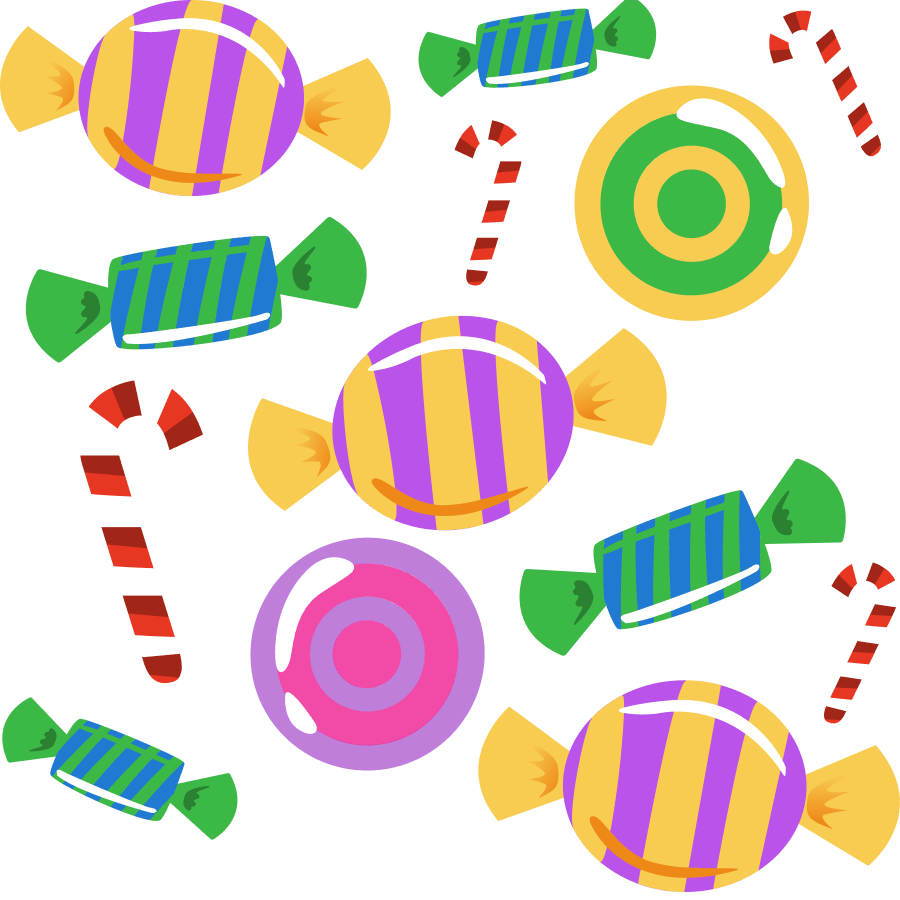Learning new words can be even more exciting when tied to holidays - and Halloween is the perfect time to expand your vocabulary with a spooky flair! We’ll explore Halloween vocabulary, including popular Halloween words, fun phrases, and even spooky quotes that you can use in conversations, stories, or classroom activities. Whether you’re a beginner picking up seasonal expressions or an advanced learner adding cultural context to your studies, these Halloween terms will make your language practice both fun and frightfully memorable.

Halloween is the best time of year to celebrate all things creepy. But have you ever wondered how that came to be? Before we dive into the Halloween vocabulary word list, let’s take a look at the origins of this spooky holiday and where it’s celebrated!
Long before it was a night filled with costume contests, spooky quotes, and candy, Halloween's origins were inspired by nature. Ancient cultures worldwide observed the changing seasons with harvest festivals that celebrated the crops the land gave and marked the start of preparations for a colder, more difficult season.
One strong influence that can be traced back over 2000 years was Samhain, an ancient Celtic festival. The Celts believed that around this time of the year, the border between the world of the living and the dead became weaker on this night, allowing spirits to cross over. Ceremonial fires, various decorations, and scary costumes were all part of the effort to scare away evil spirits. There are traces of the ancient traditions in today’s customs: making jack-o-lanterns, wearing costumes, and decorating homes with spooky ornaments.
Now we know where the traditions come from, but what about one of the most important Halloween words of all: the name of this holiday? It may come as a surprise, but the name comes from the Christian church. Around the 8th century, November 1st was declared All Saints’ Day, a holiday to honor the saints. Celebration began the night before, and the evening of October 31st became known as All Hallows' Eve. ‘Hallow’ is an Old English word for a holy person or saint, and “eve” means evening, especially before a holiday (like in ‘Christmas Eve’).
Over the centuries, these words related to Halloween (as well as the festivities) were combined, first to ‘Hallowe'en’, and finally they became the ‘Halloween’ we know today.
Halloween may have begun as a Celtic festival celebrated in Ireland and Scotland, but it’s found its way into the hearts of people across the globe. Here are a few examples of how Halloween is celebrated in different places.
Ireland and the United Kingdom
As the birthplace of Halloween, many celebrations hold on to old traditions, including bonfires and apple bobbing. An Irish custom is making ‘barmbrack’, which is a fruitcake with a hidden object baked into the bread. This object is supposed to reveal the future of the person who gets the slice: a ring means marriage, a coin means wealth.
United States and Canada
Irish and Scottish immigrants brought Halloween customs to North America in the 19th century. Since then, it has become a massive commercial holiday with traditions like trick-or-treating, pumpkin carving, and spooky costume parties. Decorating homes is also an essential part of the holiday, with many families carving jack-o’-lanterns and other creepy ornaments.
Mexico
In Mexico, Día de los Muertos (Day of the Dead) is the main holiday around this time of year, but Halloween's also gaining popularity, especially in larger cities. Many children dress in costumes for parties and go trick-or-treating, but with a local twist. Instead of the frequent Halloween phrase "Trick or treat!," they often ask, "¿Me da mi calaverita?" (Can you give me my little skull?), referring to the sugar skulls made of chocolate or sugar, central to Día de los Muertos. Read more about this holiday in our blog post, and learn some Halloween words in Spanish to go along with it!
Japan
Due to American influence, Halloween parties have become incredibly popular in Japan, especially among young adults. The celebrations include dressing up in unique costumes and street festivals, with the largest one taking place at Tokyo's Shibuya Crossing. Recently, celebrating at clubs and venues has been encouraged to ensure public safety.
European countries
While many European countries have long observed the traditional holidays of All Saints' Day and All Souls' Day, the American-style celebration of Halloween has also gained popularity the past decade. Starting in the 1990s, countries like Germany, France, and Spain started to celebrate with Halloween parties, and neighborhoods occasionally organise trick-or-treating and activities for local children. Germany has a unique Halloween phrase: “Süßes oder Saures?”, which translates to “Sweet or sour?”.

Don’t be alarmed when you encounter ghouls and ghosts shouting spooky quotes on your doorstep! Yes, on any other day of the year, this may be a bit weird, but on October 31st, the simple solution is giving them candy.
Trick-or-treating is a tradition of people (usually children) dressing up in costumes and visiting houses in the neighbourhood, asking for some candy with the iconic Halloween phrase “Trick or treat?”. The "treat" is a request for candy or other sweets. The "trick" is usually a small mischief or a lighthearted prank if no treat is given. In modern times, the "trick" is just part of the fun, and the phrase is simply the traditional way to ask for candy.
The old tradition that likely inspired trick-or-treating was called “guising”.
These two customs share similarities, but there is a key difference that adds important context to our modern spooky vocabulary!
The original Scottish and Irish tradition of guising involved young people who would put on costumes or disguises (hence, "guising") and go from house to house, much like people do when trick-or-treating. However, instead of asking for treats right away, they would put on a small show for the homeowners. It could be a song, a poem, a joke, or something short and entertaining. In exchange for this, the homeowners would give them a treat, such as cake, fruit, or coins.
In the modern North American tradition of trick-or-treating, the exchange is shorter. The visitors show up in costumes and ask for a treat right away. They may show off their costumes, but the performance part is missing. The homeowners give out treats to prevent them from making mischief. The treats are almost always pre-packaged candy.

There’s no Halloween without sweets! Learning about these words associated with Halloween will make your language skills even richer and help satisfy your sweet tooth. Let’s take a peek into a trick-or-treater’s bag!
Candy corn
Love them or hate them, these tiny pyramid-shaped candy pieces are a staple Halloween candy. They also resemble a corn on the cob if you stack them and put their pointy ends together!
Mini chocolate bars
Mini versions of chocolate bars are frequent finds in a Halloween treat bag. Many companies release fun-size versions of their regular candy bars. Not only are they delicious, but they also leave more space for other candies to fill your bags!
Caramel apple
Sweet but tangy apples dipped in gooey, buttery caramel - a delicious seasonal treat. If you’re not a fan of caramel, try a candy apple, which is dipped in a sugary coating instead! Customize them with whatever topping your heart desires.
Gummy Worms
They are the gummy bears’ longer and more slippery cousins: chewy gummy candy shaped like worms, often used in spooky-themed desserts. Sweet or sour, they’re definitely a scary good fit for Halloween!

Do you have your costume and treat bag ready? Fantastic! The only thing you might be missing is common Halloween phrases and idioms. Let’s see some spooky quotes you can use this season!
Dig your own grave
This grim idiom means to do something that will cause your own failure or downfall.
Example: If you keep lying to her, you’re just digging your own grave.
Skeleton in the closet
It’s not something your average person would gladly show off, right? Having skeletons in the closet means having a shameful or embarrassing secret from the past.
Example: His family had plenty of skeletons in the closet.
Ghost town
A place that everyone (or nearly everyone) left behind. Only some signs, like buildings or roads, remind onlookers of the once bustling life there.
Example: After the mine ran out, the settlement became a ghost town.
Graveyard shift
A work shift that runs through the late night, typically from midnight to early morning. Named so because it’s typically a quieter shift spent in solitude, kind of like working in a graveyard.
Example: John had to work the graveyard shift again.
Witching hour
The middle of the night, usually around midnight, is often associated with supernatural events. Witches and other otherworldly beings are believed to appear at this time.
Example: I always seem to wake up during the witching hour.
Spill your guts
This gory idiom is used when somebody confesses everything or tells someone all their secrets without holding back.
Example: After keeping it a secret for a decade, he finally spilled his guts.
Stab in the back
This painful expression is used when somebody gets hurt by someone they trusted.
Example: When she told everyone my secret, I felt like she stabbed me in the back.

If you just can’t get enough of the scary Halloween words, here are some that are frighteningly good! Liven up your spooky stories with this Halloween vocabulary word list.
Boo!
Did we scare you? Well, perhaps this spooky word doesn’t pack the same punch in writing as it does in real life. It’s an exclamation created to make the hearer jump! It likely comes from the Latin boō, which means to shout or roar (like an animal).
Howl
What’s creepier than walking through the woods alone and hearing a bone-chilling wolf cry? This word is an onomatopoeia, which means it’s a direct imitation of the sound a wolf or the wind makes!
Goosebumps
Goosebumps indicate excitement, whether good or bad. They get their name from the resemblance to plucked goose skin. Did you know? Some languages use different animals for this expression! The Russian version of goose skin refers to “little ants” (мурашки - murashki), while the Spanish expression is “chicken skin” (piel de gallina).
Frightened
When ‘scared’ is just not enough to describe how afraid someone is, use frightened! It’s the perfect word for describing the feeling of intense fear.

What do people do on Halloween? This list of verbs will help you describe all the fun activities. Mastering this section is perfect if you’re looking for Halloween vocabulary ESL practice.
to dress up
Halloween is all about costumes! You can use ‘dress up’ when talking about wearing a formal dress or a special costume.
Example: I dressed up as a skeleton for Halloween.
to decorate
Decorating means adding ornaments to make something look more attractive. Or in the case of Halloween, to make it delightfully creepy.
Example: "She wants to decorate the house with cobwebs."
to apply makeup
Costumes don’t end with clothing. To achieve a complete look, you may also want to apply some makeup or face paint!
Example: He applied makeup to make his face look pale.
to carve
We use ‘carve’ when we talk about cutting shapes in a hard material, like cutting patterns into a pumpkin.
Example: I’ll carve some sharp teeth on this pumpkin.
to hold one’s breath
This can mean holding your breath literally, or waiting anxiously or excitedly for something to happen!
Example: I held my breath as the door began to creak open.
to shriek
To make a loud, high-pitched screaming sound.
Example: He let out a shriek when he saw the spider.
This concludes our Halloween word list, but learning doesn’t have to stop here. Download Drops, and learn more beyond spooky vocabulary. Through engaging, game-like lessons that take just five minutes, you'll learn thousands of useful words and phrases for any time of the year.

The word ‘Halloween’ comes from the English “All Hallow Even”. Many cultures adopted this name with the holiday, so you’ll find it sounds similar in most languages (eg. Japanese: ハロウィン - harowin, Russian: Хэллоуин - Khellouin). Some exceptions are Chinese (万圣节 - wàn shèng jié - literally translated: ten thousand saints festival), and Portuguese (o Dia das Bruxas - Day of the Witches).
Frequent Halloween phrases include “happy Halloween!’ to wish someone happy Halloween festivities, and “trick or treat’” when people ask for candy while trick or treating. Scary movie quotes and creepy twists on common phrases are common too!
Looking for some short and spooky words? Some 5-letter Halloween words include “ghost,” “witch,” “creep,” “ghoul,” and “scare.” Useful for crossword puzzles and word challenges as well as the Halloween season!
"Love my fun language learning and practice with daily Drops sessions, and monthly Challenges to participate in, and quiz mode to test contextual learning - brilliant! So much thought, consideration and inclusivity has gone into the design and function of this app, I can't praise it highly enough."
"Great little learning app! I've learned at least 5-10 new words in Spanish in my first 5 minutes. Easy to pick up and thorough."
"Great language learning app! It helps you get daily words done in a short amount of time. I would highly recommend using drops to learn whatever language you want to learn."
"What an amazing app! I’ve tried several apps for language learning and I cannot recommend Drops enough. I don’t know how a short Drops session can teach me as much as 1 hour+ of focused use of other apps, it’s like magic."
"Amazing language learning tool. Excellent app for increasing vocabulary in your foreign language of choice. Useful for beginner, intermediate, and advanced learners. The repetition of the words makes them much easier to remember, and without the hassle of making your own flash cards. I have used Drops for two years now and have seen great results."
"Very engaging way of learning Yoruba in a stimulating way. Will be using to learn myself and to teach my child!"
"Less than a week in but using this alone with the popular one babbel working on German. When using just one app I got bored, babbel is not as fun. So using both at once actually let's my adhd do its thing but I still focused since I can switch easily between both apps and work in different areas. Also I like the quick little sessions makes me feel like I actually did something."
"So engaging. I speak Spanish well, but often forget words in conversation that I know I should know. This game is fun and quickly brings back vocabulary I may have put in the back of my brain after not using it for awhile. Case in point: I spent 11 years in construction, then went back to teaching in English and/or Spanish depending on the teacher/student"
"Amazing app"
"I have been desperate to find an app that really helps me learn Japanese and this is the best by far"
"I like that you can switch between different subjects and topics constantly and it’s really easy to learn a lot of vocabulary very quickly! This works perfect for me because I can learn a lot of words but then practice sentence structure with my grandmother whose from Croatia"
"Fantastic app great opportunity to learn languages on your spare time. Drops makes it easy to learn and retain words to formulate sentences."
"Best of the best. Awesome app in every sense"
"This app us the best and how I am doing Learning Ukraine is Helping me alot tnx"
"Definitely recommend! I'm using this to learn mandarin 10/10"
"Fun and interactive. Great for repetition!"
"Very engaging way of learning Yoruba in a stimulating way. Will be using to learn myself and to teach my child!"
"Amazing language learning tool. Excellent app for increasing vocabulary in your foreign language of choice. Useful for beginner, intermediate, and advanced learners. The repetition of the words makes them much easier to remember, and without the hassle of making your own flash cards. I have used Drops for two years now and have seen great results."
"Great little learning app! I've learned at least 5-10 new words in Spanish in my first 5 minutes. Easy to pick up and thorough."
"I have been desperate to find an app that really helps me learn Japanese and this is the best by far"
"I like that you can switch between different subjects and topics constantly and it’s really easy to learn a lot of vocabulary very quickly! This works perfect for me because I can learn a lot of words but then practice sentence structure with my grandmother whose from Croatia"
"Fantastic app great opportunity to learn languages on your spare time. Drops makes it easy to learn and retain words to formulate sentences."
"What an amazing app! I’ve tried several apps for language learning and I cannot recommend Drops enough. I don’t know how a short Drops session can teach me as much as 1 hour+ of focused use of other apps, it’s like magic."
"Love my fun language learning and practice with daily Drops sessions, and monthly Challenges to participate in, and quiz mode to test contextual learning - brilliant! So much thought, consideration and inclusivity has gone into the design and function of this app, I can't praise it highly enough."
"Definitely recommend! I'm using this to learn mandarin 10/10"
"This app us the best and how I am doing Learning Ukraine is Helping me alot tnx"
